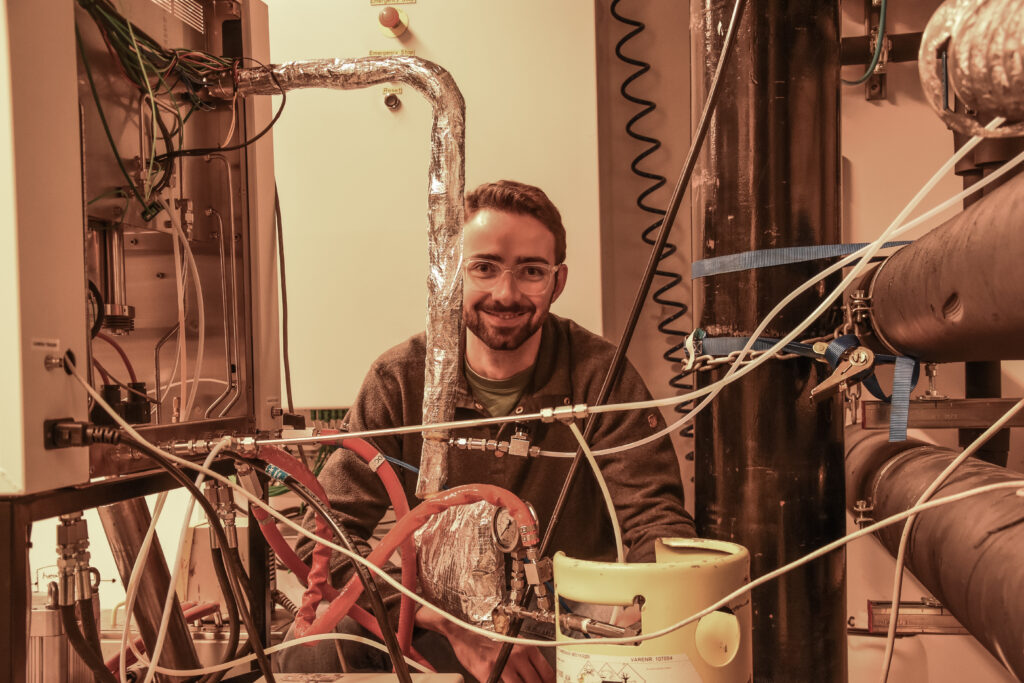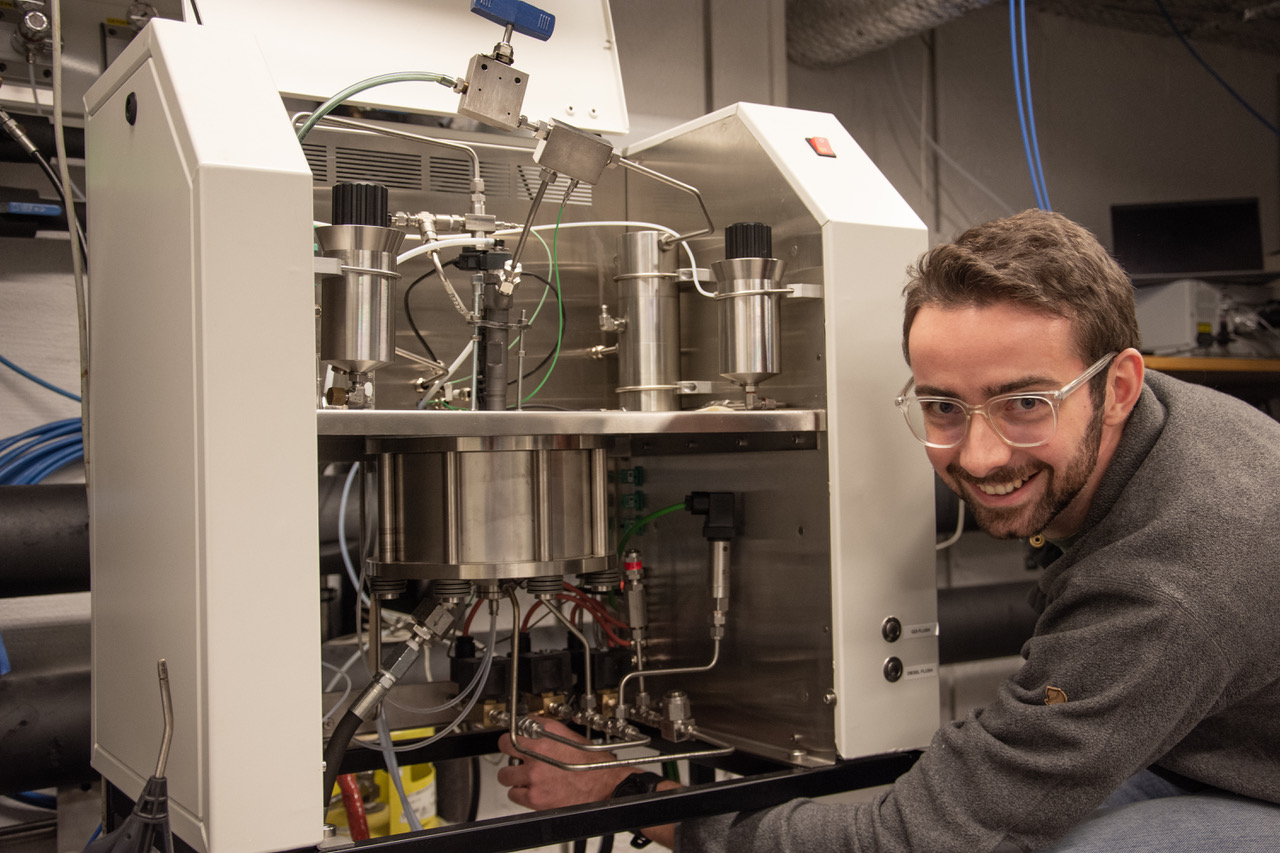Liquid ammonia and methanol are currently the most promising liquids for machines run by renewable energy. They combine a relatively high energy density with attractive possibilities for a production from green or regenerative energy.
The marine industry must head towards zero or low emission engines when we move towards a carbon free society. International shipping is estimated to produce around 3 percent of our worldwide CO2-emissions.
Challenges that must be overcome
Current marine engines cannot burn ammonia and methanol since their physical properties are very different to conventional marine fuels. A low reactivity, and more specific, slow flame speeds and high minimum ignition energies are one of the challenges that must be overcome.

One option is to combine these fuels with a high reactive fuel as ignition promoter. This can be conventional diesel fuel or n-heptane which is a laboratory surrogate.
I will investigate experimentally the minimum n-heptane quantity which is necessary to combust reliable liquid ammonia and methanol in a dual fuel direct injection combustion strategy.
Measuring the ignition delay in a constant volume combustion chamber will help to describe the combustion process of these new fuels.
Towards carbon free fuels
In foreseen future no alternative propulsion technology will reach the energy density of our liquid fuels burning in engines. Long distance and heavy-duty ships rely therefore on the development of combustion strategies for carbon free fuels.
Big marine engines have a lifetime of 25-30 years.
It is important to enable a fast and easy retrofit from fossil heavy fuels to methanol or ammonia to reduce the impact on climate change of these huge machines.
By characterizing ammonia and methanol for an application in marine combustion engines I support the maritime industry during the transition to more climate friendly propulsion systems for the global trait of goods.
It enables a sustainable economic growth while reaching emission legislations for the marine transport sector, reducing their impact on climate change.
I started my research in the beginning of this year and will continue until 2026. My work is fully funded by the Department of Marine Technology at NTNU. My experimental test rig, the Combustion Research Unit is lent from Fueltech Solutions AS, Trondheim.
About the blog author

David Zilles is a PhD candidate at NTNU – Department of Marine Technology with a project fully funded by the department. His main supervisor is David Emberson and his co-supervisor is Eilif Pedersen, both from the Department of Marine Technology.


